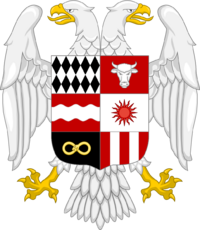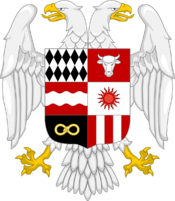Foreign relations of Amathia
 |
|---|
| This article is part of a series on the politics and government of Amathia |
Amathia's foreign policy ever since the establishment of the Amathian Democratic Republic in 1980 has been focused on attempting to mend the damage caused by the isolationism of the Equalist regime in the latter part of its existence, and to safeguard the country's independence, sovereignty and democratic institutions against all possible threats. Because of that, Amathia maintains a firm alignment with the Eastern world, while also seeking to preserve some of the country's diplomatic relationships and engagements from the Equalist period. Amathia's foreign policy is also dictated by its attempts to increase its soft power and to properly gain and cement its position as a middle power.
Amathia's foreign policy falls within the responsibilities of both the Presidency of Amathia and the Government of Amathia through its Ministry of Foreign Affairs, and it is constitutionally expected for the Presidency to lead the country's foreign policy in accordance with the objectives voted upon by the Senate of Amathia, while the Government has the role of ensuring that the goals of the country's foreign policy are achieved.
International organization memberships
| Organization | Joined |
|---|---|
| Atomic Energy Commission | 1 March 1965 |
| Community of Nations | 20 September 1944 |
| Euclean Common Defense Treaty Organization | 1 January 1987 |
| Euclean Community | 1 January 1990 |
| Global Institute for Fiscal Affairs | 1 January 1995 |
| International Council for Democracy | 12 April 1982 |
| International Trade Organization | 1 January 1995 |
Diplomatic relations with other nations
| Country | Ambassador from | Ambassador to | Formal relations began | Notes |
|---|---|---|---|---|
| Elsie O'Flynn | Mirula Costiniu | 23 September 1738 | See Foreign relations of Caldia
| |
| Gaia Xibèta | Flavia Comeaga | 10 July 1944 | See Foreign relations of Montecara |
